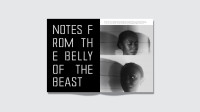firstwriter.com's database of magazines includes details of 2,184 English language magazines from around the world. The database is continually updated: there have been 45 listings added or updated in the last month, and the database was last updated yesterday, July 25. With over a dozen different ways to narrow your search you can find the right magazine for your writing, fast.
News

Richard Benson, the former editor of the Face magazine, has been announced as the editor of a new literary magazine and platform for working-class writers, titled the Bee.
Supported by Faber and actor Michael Sheen, the Bee aims to "fight the increasing marginalisation of working-class writers, and of working-class people in publishing".
Its channels include a website, a podcast and a literary magazine publishing both fiction and non-fiction. The organisers will also run an outreach programme, seeking out new writers from working class backgrounds and supporting their professional development.
"Justice and fairness demands that people from the less well-off sections of society have the chance to tell their stories, and to get them heard," Benson said. "But it’s also about common sense. Much of the important writing being done today, and so many of the best-loved stories come from ordinary working people. So often, it’s stories from the working classes that express what’s really happening in the world."

A poet said his career skyrocketed within the liberal literary scene by taking on minority personas to promote his work to publishers.
Aaron Barry, 29, of Vancouver, experienced the most success when he posed as writers with identities far from his own, even if the poems were blatantly 'trash.'
His reasoning behind the scheme was simple - to prove the poetry world is more concerned with writers' identities than the quality of their work.
'My thinking was that, if the industry - from small magazines to full-on publishing imprints - could get away with showing a clear preference toward certain groups and, in that same vein, a clear bias against other groups,' Barry began to DailyMail.com.
'Then there was nothing to say that such power couldn't be abused in the future, whether it be to adhere to shifting trends or politics, or to discriminate against additional demographics.
'Such treatment would leave writers in a state of peril and anxiety, forever having to look over their shoulders while navigating their careers.'
From 2023 to 2024, Barry had managed to fool 30 respected literary journals around the globe and got about 50 of his 'nonsensical' poems published.
He published dozens of pieces as Adele Nwankwo, a 'gender-fluid member of the Nigerian diaspora,' including one titled After Coming Out: A Wrestling Promo.'

The word is out. The Sunday Post is on the hunt for Scotland’s best unpublished, amateur fiction writers and you may well be among them.
If you can spin a good yarn, if your imagination knows no bounds, if the characters in your head won’t rest until they’re on the page, then we want to hear from you.
Today The Sunday Post launches its hotly awaited annual Short Story Competition – the third since it began in 2023.
So popular was are the contests that the crème de la crème of Scotland’s writers – Sir Alexander McCall Smith, and Bloody Scotland festival founders Dr Alex Gray and Lin Anderson – are back to judge entries, along with The Sunday Post and P.S. magazine books editor and competition co-ordinator Sally McDonald.
So, if you’ve missed our previous contests, or entered and didn’t win, now is your chance.

Analog Science Fiction & Fact has been delisted on The Submission Grinder due to new terms in the magazine’s recent contracts. Steven Salpeter of parent company Must Read Books has responded that they “are going to be in touch with the folks at the submission grinder to try to resolve the issue.”
According to the the listing, The Submission Grinder has concerns about Analog contract terms “including sublicensing to unnamed other publications, and waiving of moral rights”. This is consistent with the site’s FAQ, which includes “A publication asks for the right to sublicense the work to other publications without…specific approval from the author” and “A publication asks the writer to waive their ‘moral rights'” as possible reasons for delisting.
Articles

“Thomas Pynchon is a young writer, just twenty, who has previously published fiction in Epoch. He is a Cornell graduate and now lives in Seattle.”
Writers know that the time between when a piece is accepted by a literary magazine and when it is actually published can be rather protracted—my longest span was three years—and by the time Thomas Pynchon appeared in the Spring 1960 issue of The Kenyon Review, he was a still-young 23. He’d just graduated from Cornell, his time there split by a stint in the Navy. He worked for Boeing in Seattle—writing for Bomarc Service News, an internal newsletter.
Although tasked with writing technical pieces about anti-aircraft missiles, Pynchon was characteristically wry. In “The Mad Hatter and the Mercury Wetted Relays,” Pynchon informs readers that Lewis Carroll’s Mad Hatter had gone mad from “chronic mercurialism” or “hatter’s shakes,” which could affect Boeing workers if certain wire-wrapped glass capsules explode. “When dealing with mercury,” Pynchon warns, “even in small amounts, respect it and play it safe. Don’t become a ‘Mad Hatter,’ you might find it to be much more unpleasant than attending a mad tea party.”
The same jaunty rhythms mark “Entropy,” Pynchon’s story in The Kenyon Review. Although he would later dismiss the piece as an example of “overwriting,” something “too conceptual, too cute and remote,” the story is playfully chaotic—the type of glorious excess for which literary magazines are made.

Editor-in-chief Dan Crowe, and Pentagram partner, designer and former New York Times Magazine art director Matt Willey uncover the process behind issue two of the magazine that will only have ten.
Who doesn’t feel it? Being perplexed at how we’re going to define this generation. Living in the age of information, where stories from near and far are accessible at just a click, and the allure of the most revered crumbles under increased access to their lives and methods, it’s no wonder that a highlight reel may not be so easy to assemble. But, in the case of Inque magazine, literature is a powerful force that can remind us of the power of our collective now, in just ten years, with a projected ten issues, in a feat to memorialise the 2020s. “Every issue is its own adventure; tracking down new writers, or finally getting in touch with someone I’ve always wanted to work with,” Dan Crowe, the magazine’s editor-in-chief tells us of his journey to commissioning the likes of Annie Ernaux, Sheila Heti and Stephen Fry for its second issue.
Dan, as with all of us, has seen an increase in writers, publishers and magazines throughout the literary sphere. “But, sometimes I wish for there to be an explosion of a new and interconnected group of authors, like a new Martin Amis, Ian McEwan, Julian Barnes and Salman Rushdie hegemony, a diverse and younger school,” he tells us. “And, this seems to occur when there is a coherent force to fight against, a common enemy, and everything just feels so fractured now.” In an effort to bind this generation’s efforts, designer Matt Willey creates with the knowledge that Inque may never make sense until the decade-long ride is over. “It takes on a shape; there’s a beginning, middle and end. Like in Agnes’ photo booth series; she will change over the course of a decade, she will age, life will change and things will be different,” Matt adds.

At CNN, Leah Asmelash laments the demise of many “long-standing” literary magazines. “The Believer,” she writes, which was started in 2003, “was once at the top of the literary magazine game. A leading journal of art and culture, the Believer published the work of icons like Leslie Jamison, Nick Hornby and Anne Carson. It won awards, it launched careers.” But the University of Nevada, which has housed the magazine since 2017, announced that it was shutting it down: “In a statement explaining the decision, the dean of the school’s College of Liberal Arts called print publications like the Believer ‘a financially challenging endeavor.’”
Oh, boy. Leslie Jamison, an icon? The Believer, a publication that “launched careers”? The only thing missing here is some theme music and a “CNN exclusive” or two.
Asmelash goes on to write about a handful of literary magazines housed at universities with MFA programs that are also shutting down — the Alaska Quarterly Review and the Sycamore Review, among others. We get the predictable “It wasn’t always this way” about halfway through:
Scrolling on Instagram for several hours at a time, to try and get your work recognized? I might have the perfect way for you to get your work recognized while saving your time, simultaneously! Often, the best way to get your creative work to as many people as possible is by submitting to growing magazines.
Yes, it may seem like doing so won't do much good to your work, but trust me, growing magazines are the ones that will eventually rise to the top. With eye-catching aesthetics and magnificent formatting, global magazines are the perfect opportunity for growing writers and artists to showcase their excellent work to the WORLD!
I have personally submitted to a few global magazines myself, such as the Curio Cabinet Magazine and the Poetic Reveries. There is nothing that can match the happiness a writer gets when they see their name in a published magazine with several other talented writers.
Not only is it a great feeling, but it allows you to feel so much better about your skill and, if anything, rejections only strengthen your perspective! At least that is what my major takeaway from reaching out to these thriving magazines was and I hope you, too, step outside of your comfort zone and try these growing, youth-led poetry and art magazines out!
So, here they are, the top five thriving global magazines from the ever-trending platform for skilful, creative and outstanding writers and artists, Instagram.
Submit a listing
If you run, are involved in, or just know of a magazine not included in our magazines database, you can suggest a new listing by clicking here. You can also use this form for suggesting amendments to existing listings.
To view our inclusion policy, click here.





